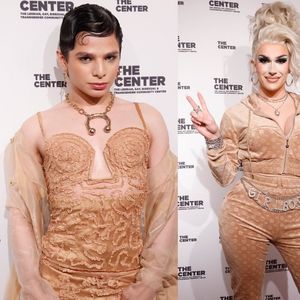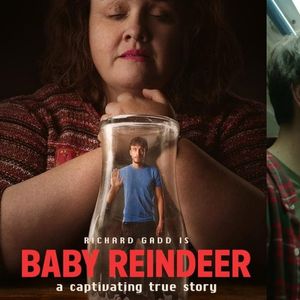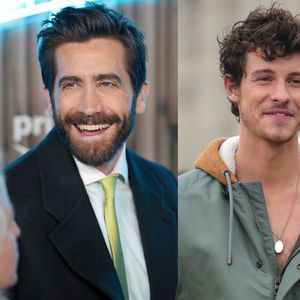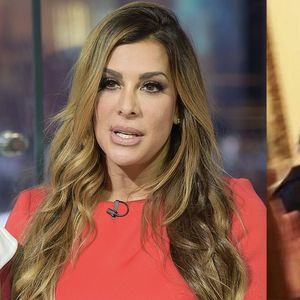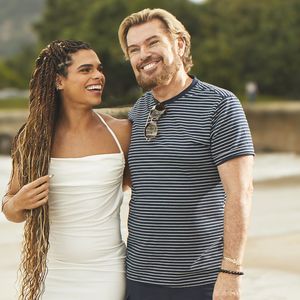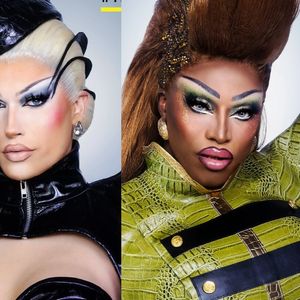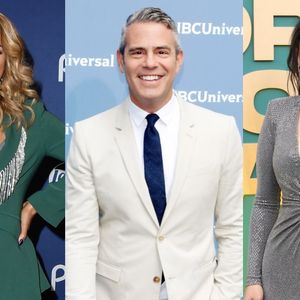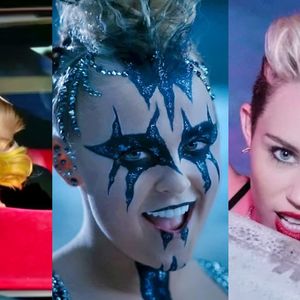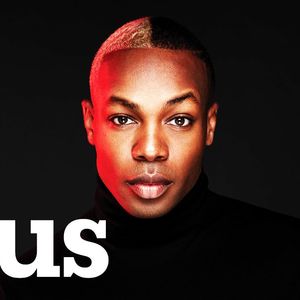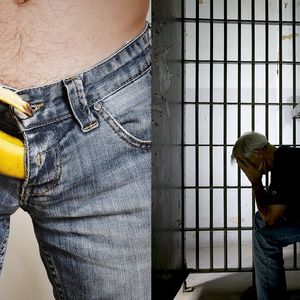
CONTACTStaffCAREER OPPORTUNITIESADVERTISE WITH USPRIVACY POLICYPRIVACY PREFERENCESTERMS OF USELEGAL NOTICE
© 2024 Pride Publishing Inc.
All Rights reserved
All Rights reserved
By continuing to use our site, you agree to our Private Policy and Terms of Use.
Trashtastic meets indie spunk in the quirky new film Mangus! from Ash Christian (the acclaimed gay director of Fat Girls). Coming out on DVD Tuesday from Wolfe Video, Mangus! stars two irrepressible actresses LGBT viewers can't get enough of: Jennifer Coolidge (who went all lesbo in Best in Show) and Heather Matarazzo (who starred in The L Word and The Princess Diaries and, most excitingly, plays a lesbian in real life, too). In Mangus! Ryan Nelson Boggus plays a kid who desperately wants to continue a family tradition by playing Jesus in his school play. But when life kicks him down, his friends and family (Matarazzo is his sister in the flick) -- and a few others who have key cameos, including John Waters and Leslie Jordan -- help him rally back again.
We caught up with Matarazzo to talk about love interests, rocking bodies, her new TV show, and realizing she was gay at 11 (while on a movie set!). Her one condition? We had to promise to share her Twitter handle: heathermatarazz.
The Advocate: Mangus! is about a kid who desperately wants to play Jesus in the high school musical, but the movie doesn't feel religious in any way.
Heather Matarazzo: Yeah, it wasn't meant to be religious at all. The filmmaker is Ash Christian, and he's a really big fan of, and his heart is in, stories about small towns and character-driven pieces that deal with idiosyncrasies and the like, so this was just a version of that.
I think the film has a campy absurdism to it that John Waters's fans will enjoy. Is that a tough style to pull off?
No, I don't think so. I feel that if you're good at your job regardless of what that job is, the tonal quality of any film, whether it be campy or serious or straight comedy, that shouldn't really matter. And the truth of the matter is, when you get to work with really great people like Leslie Jordan or Jennifer Coolidge, it's very, very easy.
Your character is a 20-something bleached-blond lesbian named Jessica Simpson. Tell me how you envisioned her.
She is pretty much a girl who is suffering from an identity crisis. She's trying to make her way in the world, and she thought, Well, let me try being a lesbian for a second and see how that works out. I envision her being high-class white trash -- or at least she thinks she is -- and she thinks she has a grander view of the world than perhaps she actually does. At the end of the day, she has a heart of gold, and for all of her rough edges, she is still pushing that wheelchair and still trying to help her brother to achieve his dreams.
You have a very funny sex scene with a girl in an ice cream truck. Were there any more of those scenes that got left on the cutting room floor?
Nope, that was the only one.
Well, it was a hilarious scene.
Thank you. I'm glad.
The beloved Jennifer Coolidge played your mom in the film.
It was my second time working with her. We did The Women together on Broadway in 2001-2002. Ash and I, from the beginning, really wanted her to be a part of this project, and luckily she said yes. And it was a great reunion and we had a lot of fun.
Mangus is a kid who really wants to continue certain family traditions. What sorts of family traditions do you hope to continue?
I don't know how to answer that question. For me, traditions get to grow and evolve as people get to grow and evolve. And obviously the holidays are all about being with family, but I don't know if that's a tradition per se, it's just something that's ingrained. There's no like, weird, crazy family tradition that we have.
Your films have really crossed a lot of genres, from Hostel 2 to Princess Diaries to Mangus! Do you have a film style that you're more drawn to?
I just follow the storytelling. At the end of the day, it's just the biggest thing for me, when I read a story, when I read a script, is it something that I feel challenged by, is it something I'm horrified by, is it something I'm inspired by, is it something that I'm judging? It's those kinds of scripts that get me excited. It's the scripts where I'm reading 30, 40, 50 pages in and I'm absolutely bored to death and everything I see is on the nose that I say no to. And there are fewer and fewer scripts out there that are really telling any kind of truth. [Screenwriters] are pandering to the idea of what they think is going to be a good film as opposed to really being more concerned and excited about by sharing a story that they really want to tell.
Do you think that's because there's so much pressure to sell a movie? That they just think of what will get people in the seats, to get big box office numbers?
Well, I feel that what it is really is that people are focusing on the results as opposed to really enjoying the process. And I feel that shortchanges not only the process and what a script could be and what a film could be, but it also shortchanges the audiences. Julianne Moore has this really great quote that I think is so true: "Audiences are not going to see me, they're not going to see big movie stars, they go to see themselves." And I feel there's been a really big trend that says, "Oh, let me write down something or let me tell a story that I think people are going to want to see" as opposed to actually writing a film that you would want to see. What is it that speaks to you?
Is there a script that you regret having turned down?
Absolutely not. I'm so grateful for every single choice that I have made, especially when it comes to turning down material.
Why don't we see you in more films as a love interest? Are you too unconventional for that?
No, the truth of the matter is you would have to ask casting directors, producers, and directors. For me, though, I also really do fall in line with [thinking that] the part is seeking me as much as I seek the part, and every single film I've done, and every single character I've played, I've meant to play and it was meant for me and no one else. I've never really thought of, Why don't I have more love interests? But the truth of the matter is that in quite a bit of my films I have had love interests, they just haven't been the conventional relationships that you [expect]. The character I played in Getting to Know You, who meets this random guy at a bus station ... while there is no quote/unquote kissing or groping involved like in a bathroom stall, there is an intimacy that is played. So I feel like I get a lot of opportunities to demonstrate and show different aspects of intimacy, just not in an in between the sheets kind of way.
I love that with Hostel 2, as a torture film there's so much to be said about it from like a feminist perspective, but when you look at a lot of the people's online comments online they say, "Heather Matarazzo has a rocking body!" How do you feel when you hear stuff like that?
[Laughing] Well, it's better than hearing, "She should wear a potato sack!" But the truth of the matter is, it's always nice to be appreciated -- whether it's my physical form, my gift I have as an actor, producer, or writer -- it doesn't really matter. I'm always grateful for the appreciation.
You were always attracted to girls but said you didn't really have a name for it until you became aware of gay people when you did Welcome to the Dollhouse when you were 11. Did that experience frighten you?
No, it was exhilarating. To be able to finally put a name to something is always exciting, it's always exhilarating, and that was my experience. I'd rather know than not know ... as human beings, we're always trying to figure things out and get to, like, the root and put a name on it. Being able to find out that I wasn't terminally unique and I wasn't some weird freak, I was like, Oh, this has a name. It has a name.
Very few people got to do that at 11.
Yeah, especially in the mid '90s. I feel like today it's a lot different -- resources are available that I feel weren't available to me you know when I was that age. I'm also very grateful that I got to have the experience of having personal relationships with these individuals as opposed to just having it be on some computer screen or in front of a TV. I actually got to see in real time, in my face, on a daily basis, like, Oh, my gosh, I identify with these people on so many levels. And it gave me, really, that reassurance that I was not alone. And you can go to any website you want to, but ... at least for me, I need that face to face time. I crave that human contact, like being in the same room, and I don't know that a website would suffice.
Right, I think one of the things that we're seeing right now with so many teen suicides, there are kids who have hundreds of Facebook friends or Twitter followers, but that's not the connection that helps these kids feel better. The technology doesn't always help as much as one would hope.
Yeah, and the truth is, I feel like we live in a real fear-based society, and whether you're gay, straight, black, white, Christian, Muslim, it doesn't really matter. For myself -- and I know thousands of other people feel this way -- that [feeling that] this is too good to be true and therefore it's not so. I feel like we live as though life is meant to be endured -- Well if something really great happens to me, when is the other shoe going to drop? And always in that fear and always in that apprehension, and I feel it's not a gay/straight thing and an acceptance thing, it's a fear versus love thing. That's the basis for me of human emotion. I'm either operating from a place of fear or I'm operating from a place of love.
And are you aware of this at the time that you're experiencing emotions?
I feel like every day is an opportunity for me to learn and grow. Self-reflection has been really good for me. I had gotten to a point in my life where something had to give, and what had to give was the way that I thought and the way that I viewed the world. So I actively sought out the change that I wished to be, because no one else was going to do it for me.
You officially came out when you were 21, back in 2004, in Hollywood. Do you feel like it has impacted your career?
Jeez, you know, again, I don't know. The truth of the matter is, I feel like it's kind of an irrelevant question because ...
Because you don't care?
Not really because I don't care, but more of like I might have a different answer for you if my career was my life. But my career isn't my life. It's a great vehicle for me to be a service to the world and demonstrate the gift that I have been given, but it's not my life.
So if it went away tomorrow, would you have regrets?
I don't think that I would have regrets, because that just means the universe has something else for me that I'm meant to be doing. It would just feel like, OK, I'm really excited to see what that is, and I'm really excited to see what that's going to look like.
That's a really evolved perspective. I think a lot of people aren't there yet.
And the truth of the matter is that it comes and it goes. Here's the deal: I've wanted to be an actor since before I could speak. Pretty much my first words out of my mouth were like Madonna's "Dress You Up" in 1984. My mom just told me this story of me pointing to the TV and saying, "I do that." It's the only thing that I know how to do. It brings me some of the greatest joy, and on top of that, that joy has evolved in finally being able to receive compliments from strangers on the street.
Getting to actually stand in my own light and get to see an experience, not in a grandiose way or a way that is filled with ego, but in a right-sizing way that, yes, I am able to claim and see from my experience from others, that I am being of service to them and they are being of service to me. So if it was the deal that I was still doing this because I wanted to be rich and famous, I might have a different answer for you. But the truth is, I don't think I was given the passion or the path I was given to all of a sudden have it disappear.
Your fiancee, Caroline, remembers calling her mother and telling her the day she met you, "I just met my future wife." What do you remember of the day?
That it was magical, that it was beautiful, like something that I had never experienced before. You don't know until you know. Like a second beforehand, I didn't know ... that my life was going to change. I talk to so many people that say, "When am I going to meet someone?" and I really had to get away from the idea of that. I was able to be happy and free whether or not I was in a relationship. That the idea of the relationship and being in a relationship wasn't what it was all about. Getting to actually be happy with myself, that I didn't need to have another person, and it wasn't until I got to that point, just feeling so comfortable in my own skin, I was open enough to recognize her when I saw her.
Do you have a date set?
We're both really, really busy, so it's that kind of thing that it's going to happen when it's meant to happen and not a moment before.
Years ago, when I was editor at Curve magazine, we worked with The L Word on a script about one of our editors giving Jenny's new book a very bad review. It was your character, Stacy Merkin, who I say ended up playing me on TV. What was the response to that character?
People hated her. They absolutely hated her. It was one of those things where I think it's so funny how characters can be either glorified or vilified. And I was a little surprised that she was so vilified. But then also other individuals that hated the character of Jenny, loved her. It was great working with Mia [Kirshner, who played Jenny]. She was wonderful and it was a lovely, lovely experience.
What's next for you?
I'm working with a writer right now to bring a TV series [together]; we're going to start a pitching soon. It's based on Diane Hanks's memoir called Summer Camp. She's a writer I have had a relationship with for a long time and her memoir is absolutely amazing. Her story is absolutely riveting, one which I think is timeless and universal, and I'm really excited to watch it come to fruition.
Watch a clip from the film below:
deliciousdiane
Want more breaking equality news & trending entertainment stories?
Check out our NEW 24/7 streaming service: the Advocate Channel!
Download the Advocate Channel App for your mobile phone and your favorite streaming device!
From our Sponsors
Most Popular
Here Are Our 2024 Election Predictions. Will They Come True?
November 07 2023 1:46 PM
17 Celebs Who Are Out & Proud of Their Trans & Nonbinary Kids
November 30 2023 10:41 AM
Here Are the 15 Most LGBTQ-Friendly Cities in the U.S.
November 01 2023 5:09 PM
Meet all 37 of the queer women in this season's WNBA
April 17 2024 11:24 AM
Which State Is the Queerest? These Are the States With the Most LGBTQ+ People
December 11 2023 10:00 AM
These 27 Senate Hearing Room Gay Sex Jokes Are Truly Exquisite
December 17 2023 3:33 PM
10 Cheeky and Homoerotic Photos From Bob Mizer's Nude Films
November 18 2023 10:05 PM
42 Flaming Hot Photos From 2024's Australian Firefighters Calendar
November 10 2023 6:08 PM
These Are the 5 States With the Smallest Percentage of LGBTQ+ People
December 13 2023 9:15 AM
Here are the 15 gayest travel destinations in the world: report
March 26 2024 9:23 AM
Watch Now: Advocate Channel
Trending Stories & News
For more news and videos on advocatechannel.com, click here.
Trending Stories & News
For more news and videos on advocatechannel.com, click here.
Latest Stories

PLUS
ExclusivesTodrick Hall on surviving the rumors and remembering where he came from
April 17 2024 2:33 PM

Pride
Yahoo FeedHow The Pride Store celebrates National Tea Day: A tale of two brews
April 17 2024 2:14 PM
'Parents' Rights' movements forget families have the right to read LGBTQ+ books
April 17 2024 10:15 AM
This gay man had to flee Ghana after a violent attack. He’s finally been granted asylum
April 17 2024 9:17 AM
Ohio court temporarily blocks ban on gender-affirming care for trans youth
April 16 2024 5:33 PM
How library workers are defending books, democracy, and queer lives
April 16 2024 4:38 PM
Trending stories
Most Recent
Recommended Stories for You

Diane Anderson-Minshall
Diane Anderson-Minshall is the CEO of Pride Media, and editorial director of The Advocate, Out, and Plus magazine. She's the winner of numerous awards from GLAAD, the NLGJA, WPA, and was named to Folio's Top Women in Media list. She and her co-pilot of 30 years, transgender journalist Jacob Anderson-Minshall penned several books including Queerly Beloved: A Love Across Genders.
Diane Anderson-Minshall is the CEO of Pride Media, and editorial director of The Advocate, Out, and Plus magazine. She's the winner of numerous awards from GLAAD, the NLGJA, WPA, and was named to Folio's Top Women in Media list. She and her co-pilot of 30 years, transgender journalist Jacob Anderson-Minshall penned several books including Queerly Beloved: A Love Across Genders.
































